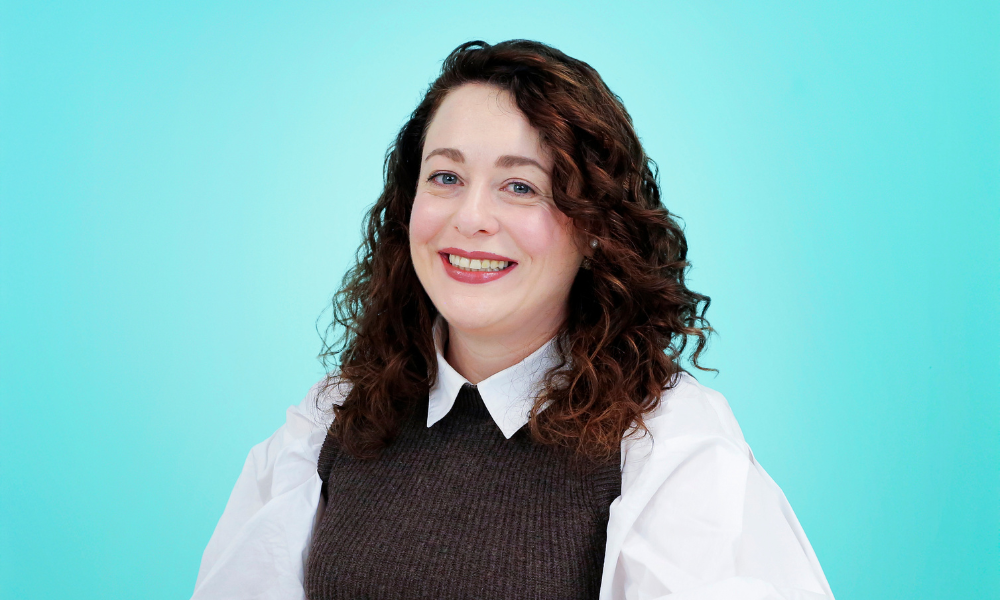Christine Chen didn’t just join University Pension Plan Ontario (UPP) in 2021 – she helped build it from the ground up. Within six months of arriving, and in the middle of a pandemic, Chen launched the $10.8 billion fund’s legal operations, despite having no infrastructure, no legal team, and no margin for error.
"Starting an organization from a blank piece of paper, it's a once-in-a-lifetime opportunity," she says. "It's also really, really daunting."
Personal credit cards filled gaps where systems didn’t exist. Critical agency agreements, governance frameworks, and transitional arrangements with the three founding universities were negotiated under intense pressure. "Without [our external counsel], we would not have launched on time," she says. At the same time, Chen developed core legal policies, regulatory compliance structures, governance documentation for the board, and drafted and negotiated dozens of startup contracts – laying the foundation for UPP’s operational independence.
Chen wasn’t just drafting documents. She was recruiting UPP’s inaugural C-suite, hiring her own legal department, and building relationships with key external partners including regulators, actuaries, investment managers, and member universities – all while safeguarding fiduciary obligations for the 37,000 pension members they had at launch, which has since grown to 41,000.
"We were very deliberate in terms of trying to find senior people," she says. "We needed people who knew what they were doing."
Her hiring lens was sharp: excellence was mandatory, diversity non-negotiable. "I'm looking for diversity in candidates, not just from a gender or ethnicity perspective, but really thought perspective," she says.
Today, UPP’s legal team is 11 lawyers strong, majority female and majority racialized. Chen makes clear this isn't optics and she expects the same commitment to diversity from external firms. "I ask for the diversity metrics quarterly," she says. "If there are questions around whether they're living up to that, then we will have a discussion."
Her commitment to diversity stems from her belief in the profession’s fundamental role in society. "It comes down to principles and values," she says. "Those underpin the rule of law as well as democracy."
Her career trajectory – from Bay Street lawyer to international tax at Deloitte, to private equity, governance consulting and now pensions – is anything but traditional. It’s also precisely what made her the right leader for UPP’s early, rapidly evolving, days.
"I had more doing left in me," she says of the decision to take on the role.
Building UPP also allowed her to rethink what a general counsel should be. "It really has evolved into much more of a strategic business partner advisory role," she says. "It's about setting your team up for success."
Chen’s team is lean but built for impact. Core legal work stays in-house, with external counsel brought in to support specialized, high-risk matters like pension regulation and major investment transactions. High-volume tasks, such as contract reviews and document drafting, go to alternative legal service providers like MTAlign and Osler Works. "You can think of them in two buckets," she says.
Despite a remote start, UPP’s culture didn’t fray. “People genuinely like each other,” she says of her team. Today’s hybrid schedule – one team day and one cross-functional day per week – is designed to maintain that cohesion and visibility across business units.
Lobbying is also on her list. In 2023, Chen’s team helped secure legislative changes that streamlined actuarial reporting timelines after plan conversions and removed confusing transfer ratio disclosures for joint-sponsored pension plans, reducing unnecessary administrative burdens and member confusion. "Lobbying is a really interesting process," she says. "A lot of pieces need to come together."
Through it all, Chen relentlessly focuses on first principles. Fiduciary duty isn’t a slogan at UPP – it’s the anchor for every decision. “Liquidity is key,” she says. “You have to keep your fiduciary duty front and centre. That helps guide decisions even when there are unknowns."
She has a klaxon call for young lawyers overlooking the pension sector. “We need more people in this area,” she says. “The pension law bar is tiny.”
Across the profession, she believes there’s an urgent need for new blood, fresh perspectives, and a deeper commitment to equity. Chen isn’t waiting for the market to change on its own – she's building the future herself.
And she’s doing it the hard way: brick by brick, principle by principle.





